By Laetithia Harb & Sophia Roth
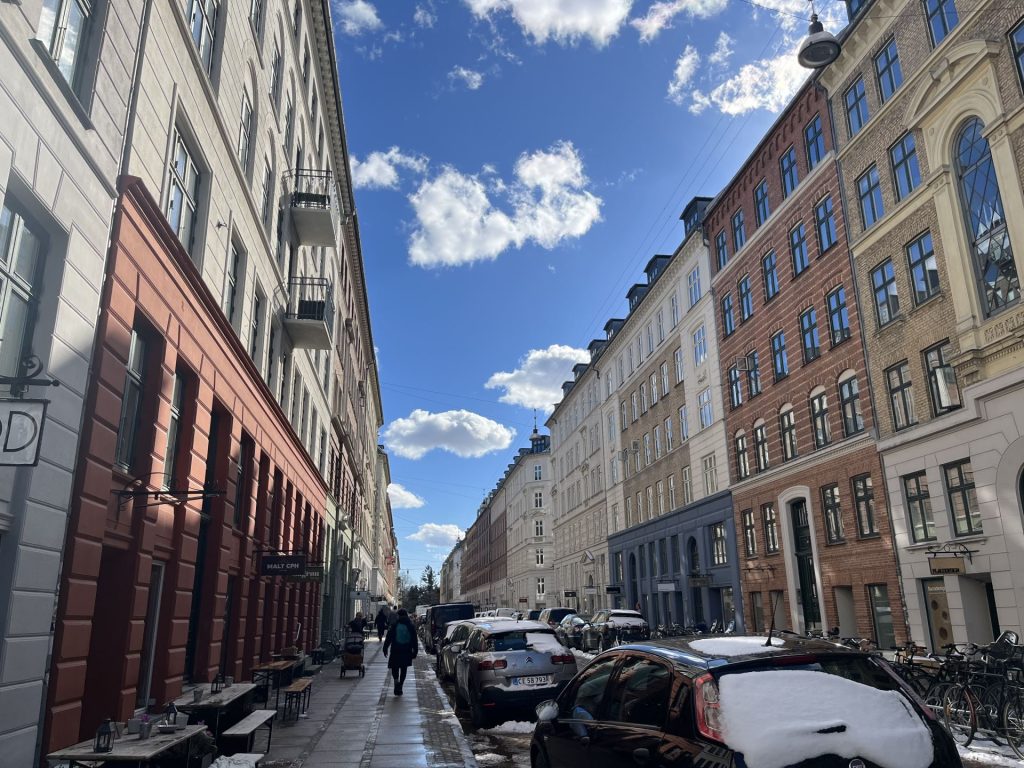
Jægersborggade, a cobblestone street nestled in the Copenhagen neighbourhood of Nørrebro, is one of the trendiest streets in the Danish capital. It is home to several stores that are owned by locals and boast unique concepts – making the street an asset to the city.
In the past, Jægersborggade was known as one of the sketchiest streets in Copenhagen, a place of drug trafficking and gang meetings. With time, however, it has emerged as a must-see location full of activity, always bustling with locals as well as tourists. It is lined not only with charming cafés and fine restaurants but mostly stores that focus on sustainable and handmade goods. Wilgart, a hat shop and cap-making workshop, opened its doors on Jægersborggade in 2018. The same year, the founder of the only cap-makers in Denmark, Silas Skram, partnered with Tomáš Chovan. Inspired by the innovative and niche product, and passionate about craftmanship, the two young men are dedicated to producing high-quality handmade caps that appeal because of their longevity.

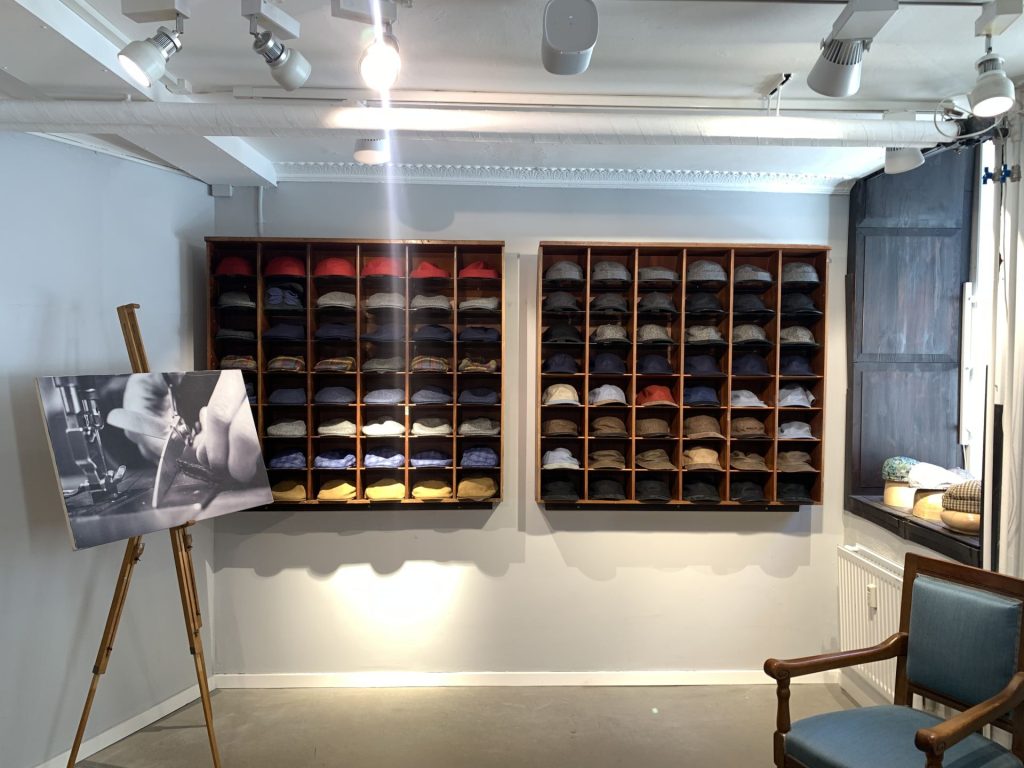
Right: Wilgart sells many different caps. © Laetithia Harb
Tomáš, who studied product development in his home country Slovakia, says prolonging the life of a product is most important to Wilgart. By carefully choosing sustainable fabrics manufactured by companies that also follow this approach, the two produce around 500 caps a year in Copenhagen and at their second workshop on Bornholm. They are currently working on receiving a GOTS-certification, the leading textile processing standard that includes ecological and social aspects.
Bringing the production closer to the people is another aim of Wilgart. Handmade caps, Tomáš concludes, have an emotional value to the buyers as the product can be customised and therefore is unique.
Wilgart’s next-door neighbour is Ladyfingers, a jewellery shop collectively owned by four women. With their own individual style, they all create handmade pieces in their workshops scattered across Copenhagen and sell them to customers on Jægersborggade. Pernille Vinderskov, a designer for 15 years and one of the collaborators, enjoys making jewellery because she thinks people treasure the pieces for a long time. Sustainability in her work is important to her. “I buy all my material from a Danish company that offers recycled gold and silver. In that way I can trust what I am buying.”
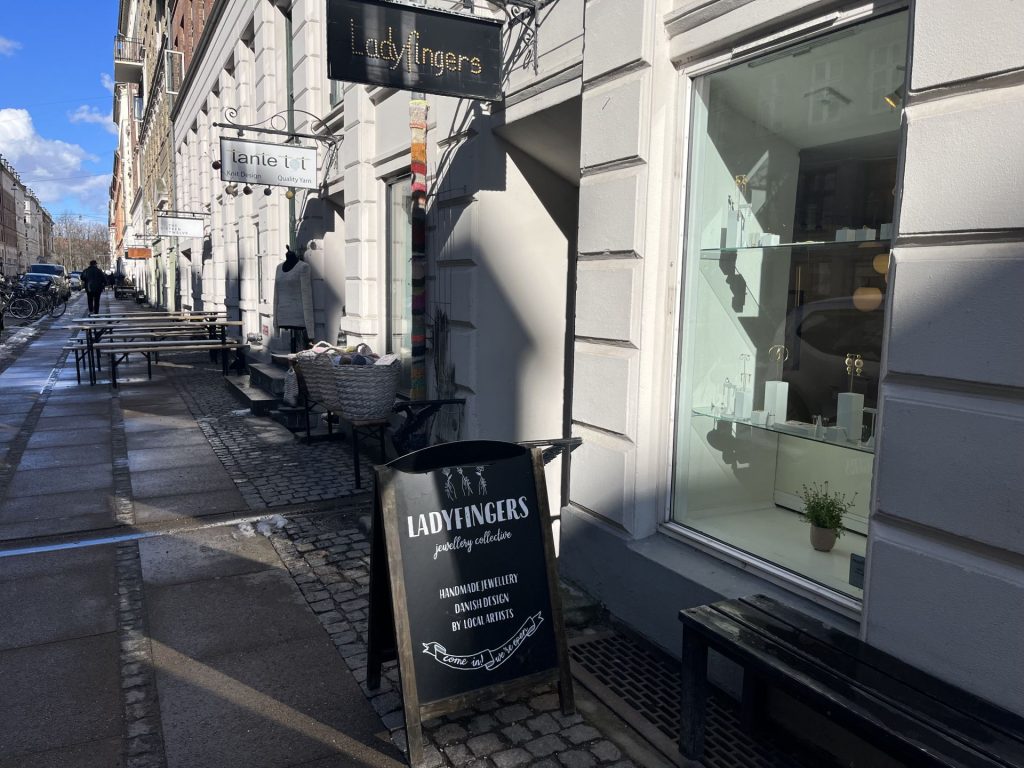
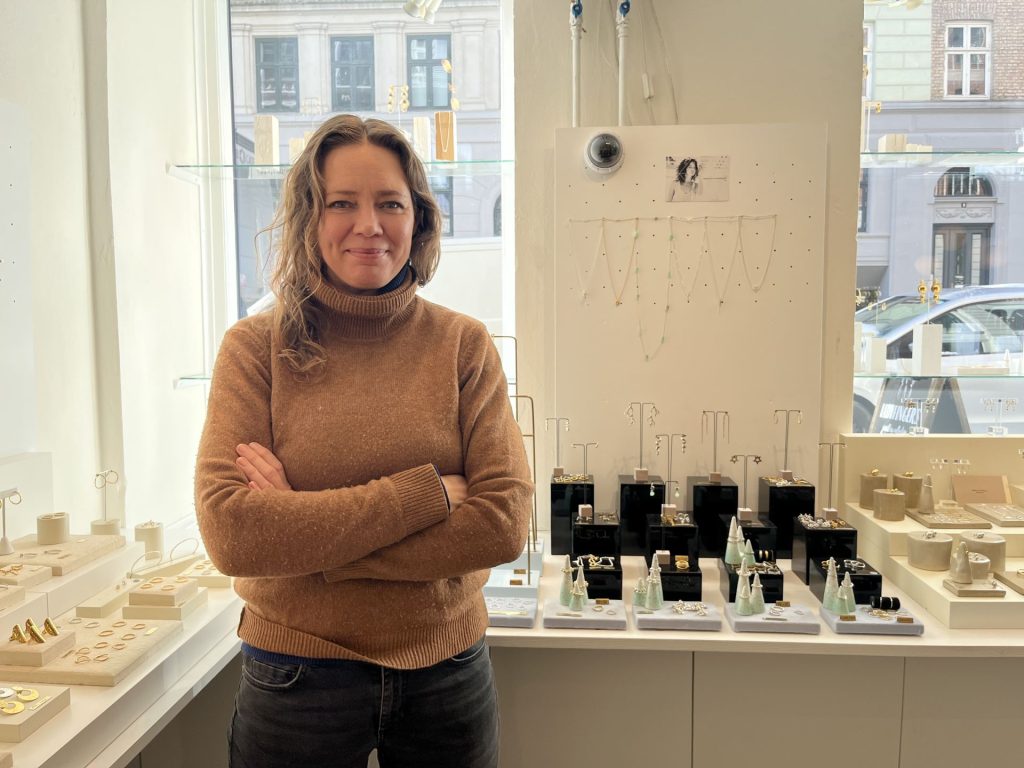
Right: Pernille Vinderskov with her own pieces. © Sophia Roth
Customers can also bring along old trinkets inherited from family members to Pernille and ask for a remodelling to their liking, so “they can carry on wearing something meaningful from their families,” she says.
Across the road, Camilla Plums Blandede Landhandel radiates with baskets full of colourful and tasty-looking fruits. Camilla is the owner of an organic farm north of Copenhagen where she cultivates gardens and raises animals. Her shop on Jægersborggade is known for offering these local and organic products, ranging from spices and spice blends to herbs, planting seeds, fruits, vegetables, meat, and upcycled fabrics.
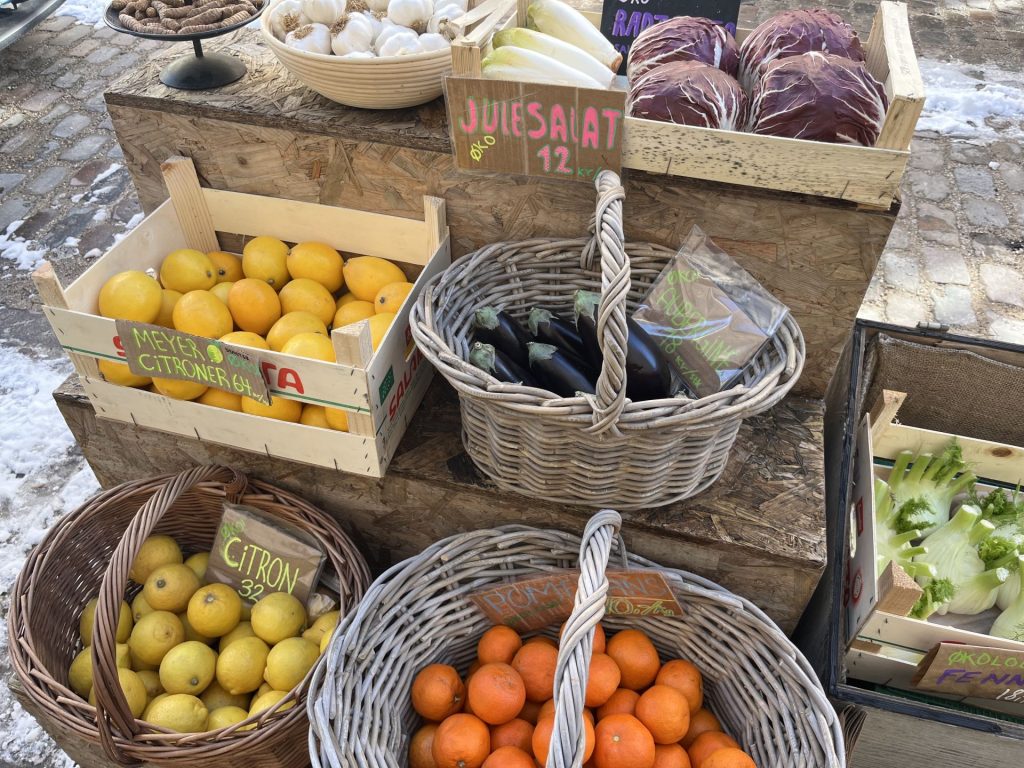
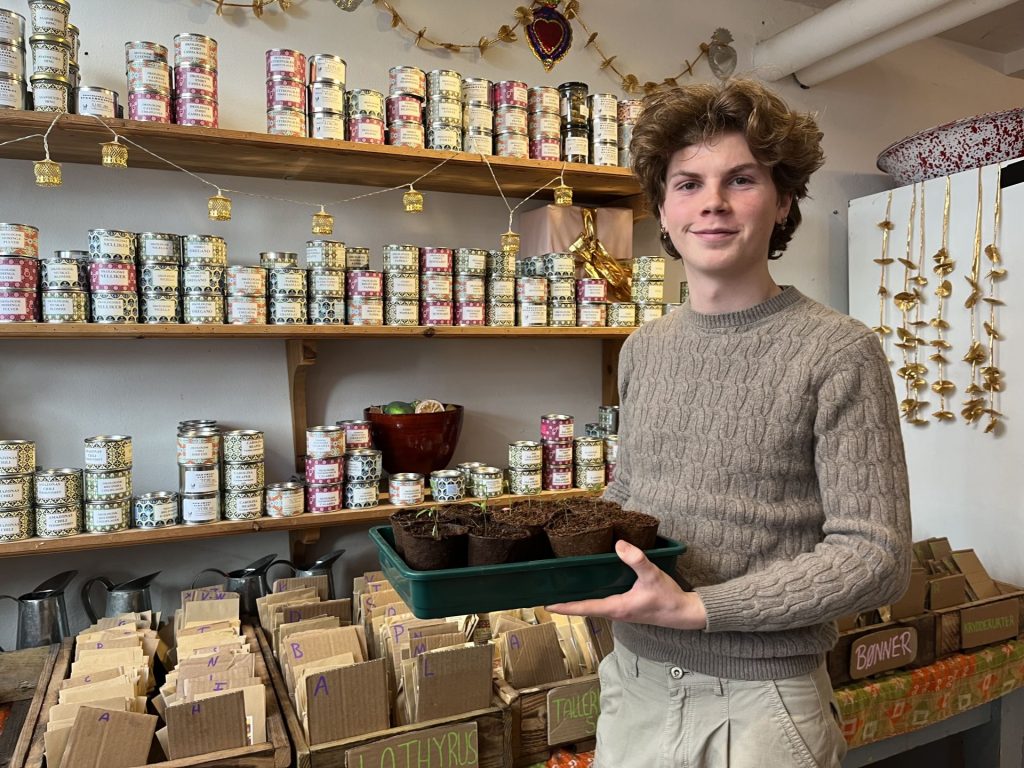
Right: August Kristensen has been working at the shop since last year. © Sophia Roth
The interesting fact behind the concept of the shop and farm is that Camilla “has a love for heirloom seeds of old, protected, threatened types of fruits and vegetables,” employee August Kristensen, says. Not selling out of his principles, meaning products produced in a way he is willing to support, was important when he was looking for a job in Copenhagen.
Organic farming, however, means that products can only be produced in season, which results in large variations of customers visiting the store. August remembers, “now people are buying seeds because it’s planting season, but in Autumn sales of fruits and vegetables were good because they were coming fresh from the farm.”
Copenhagen is not surprisingly considered one of the world’s most sustainable cities. As Tomáš concludes, the demand for locally and sustainably produced products has made itself visible on Jægersborggade.